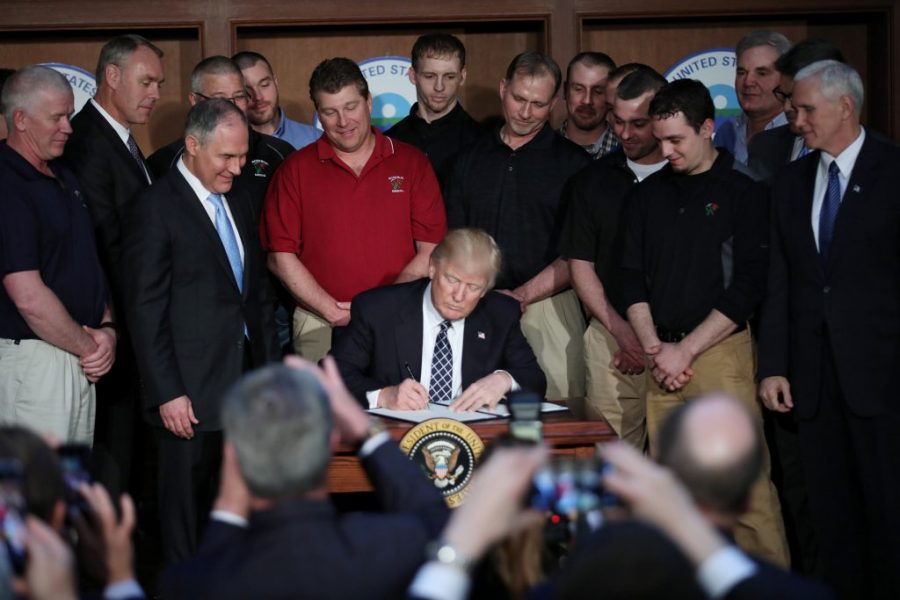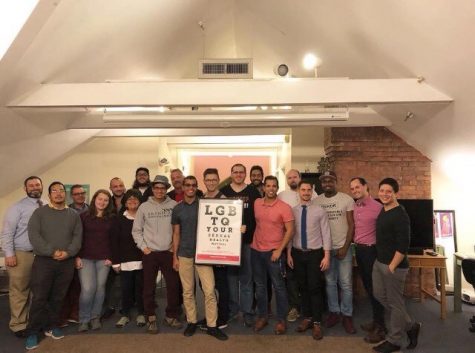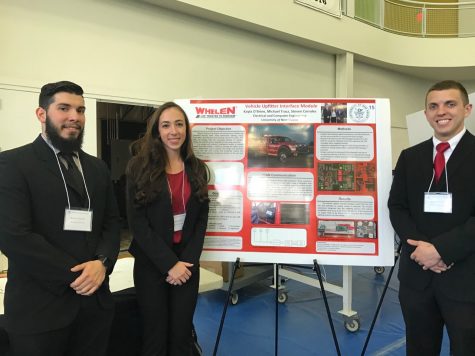UNH Professors and Students Discuss Concerns With Trump Science Policies
President Trump signed an executive order on March 21 that included measures to dismantle the Clean Power Plan, a set of regulations put into place by former President Obama, designed to restrict the emission of fossil fuels.
Reactions to this plan have varied across the country, with support from the coal industry and resistance from scientists and much of the public; however, within the environmental department on campus, opinions remain against the order.
Dr. Kristen Przyborski, a professor at the University who holds a master’s degree in Environmental Policy, is extremely disappointed, but like many, is not surprised by the order. President Trump had been promising to increase jobs in the coal industry since the beginning of his campaign.
“I’ve been sick to my stomach since the day that man became president,” she said. “It’s unbelievable to me, it’s very concerning.”
Dr. James Ayers, another professor at the University, expressed his concerns, as well as his understanding.
“I understand his logic in doing it, but in the long run it’s a mistake. Where we might save money now in using coal, in the long run it’s going to cost us more than we save,” he said.
While Trump cited an increase in jobs for the coal industry, Przyborski is not convinced. Ayers as well as Przyborski expressed their concern that the coal industry and climate protection cannot co-exist.
The majority of the students within science related fields on campus are opposed to the plan, due to its potential to increase the rate of climate change.
“Carbon emissions affect multiple processes and ecosystems in so many ways that it is baffling to think that our President is so naïve to at least a couple of the negative impacts that the removal of this act will cause,” said Katy Zicker, sophomore marine biology student.
Samantha Davern, a sophomore marine biology student expressed concern over the lack of renewable energy in the United States. As she expressed, in a world where there is abundant research that renewable energy is much more efficient and better for the environment, it is sad that we continue to “destroy the only world we have.”
“What Trump is doing with his power in regards to the environment can have detrimental consequences, not only to the other organisms living on the planet, but to us as well,” said Matthew Neumeyer, junior double major in Forensic Science and Biology. “For now, Earth is our only home, and we have to maintain it.”
The implications of this executive order may not be brought to fruition in the near future, as it faces resistance from many states on a local level, as brought up by Przyborski. Ayers also expressed his belief that the executive order would not gain much ground, and stated that he is more concerned for the potential consequences of cutting the EPA budget. While the executive order takes steps in the direction of dismantling the plan, there is a long road of legality facing any real, visible change.
While states have been resisting, there has yet to be intense public resistance. As the March for Science and the Climate March quickly approach this month, Przyborski and Ayers hold conflicting views on their turn-outs.
Przyborski expressed her belief that “we’re going to see a huge science march on Earth Day.” She also hopes that the same people will show up to the midterm elections, in a measure to prevent further action by President Trump.
“I’m not confident. I think we as a species have a bad habit of only thinking of the here and right now at this point in time. We can respond quickly to something, but we can’t deal with the abstract of 10 or 20 years down the line,” said Ayers.
Przyborski explained that the best hope for counteracting the order quickly lies in the judicial branch as well as the larger non-profit environmental agencies suing on behalf of the American public.
Przyborski as well as Ayers expressed concern that this executive order would leave the United States behind in global efforts to combat climate change. They also expressed their concerns that it is too late to have as large an impact on climate change as is necessary. Przyborski explained that “we’ve already reached a pretty big tipping point,” while Ayers explained that he is not optimistic saying, “We’re dragging our feet and we’re going to pay for it.”

Karina Krul is a senior marine biology major with a triple minor in psychology, political science and marine affairs. This is her fourth year with The...












